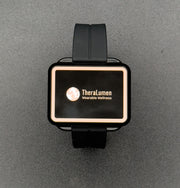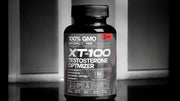How Often Should Red Light Therapy Be Used?
"How often should I use LED light therapy at the house?" Is a common question we get from people who are contemplating it as a kind of therapy.. The typical response is three to five times a week for 10 to 20 minutes. And that's a fantastic place to begin. However, bear in mind. The red light treatment provides good alleviation from a wide range of diseases.
.Red light treatment does not have a one-size-fits-all dose.
This post will show you how to find the right dose for you. But first, let's go over some background information on red light treatment and how it works.
Note: TheraLumen panels use clinical-grade materials and workmanship to help you obtain greater results in less time. To discover more, visit the QuantusLife.com store.
Basics of Red Light Therapy
Photobiomodulation, or low-level light treatment, is another name for red light therapy (LLLT). LED bulbs are used in red light devices to expose the skin to certain wavelengths of light. These wavelengths are measured in nanometers and vary in length depending on their hue (nm). Light of various wavelengths penetrates the skin to differing depths, where it promotes natural biological processes, including cell supercharging.
Red light, with wavelengths ranging from 630nm to 660nm, and near-infrared light (NIR), with wavelengths ranging from 800nm to 850nm, are included in the phrase "red light treatment." According to studies, the red and near-infrared wavelengths provide the biggest health advantages (the therapeutic window).
Everyone's treatment requirements are different.
Now that you have a better understanding of the science behind red light therapy, we'll go over some of the most frequent ailments treated with it and the normal dosage—which varies from person to person.
It is scientifically proven that no two persons are alike. Everyone has varied health demands and reacts to therapies in the same way that everyone has different DNA, fingerprints, ears, and teeth. Keeping this in mind, the best red light dose for you is determined by the condition(s) you're treating, your general health, and your light sensitivity.
Treatments should be changed Depending on the condition(s) being treated.
Some effects, such as muscular recuperation or skin tone improvement, might occur soon following red light treatment.
Other effects take longer to complete.
Because enhanced cellular health and other biological processes occur when red light activates cells, the effects are dependent on them. A reasonable expectation for outcomes for chronic illnesses is one to four months.
Continued sessions may assist sustain gains in skin tone, pain management, muscular health, and hair regrowth after reaching your desired outcomes.
Your General Wellbeing
Waiting for results from red light treatment might be stressful if you're in bad health and have several chronic ailments, but be patient and persevere. At the cellular level, red light heals from inside. It encourages cells to perform at their best, allowing the body's natural healing processes to act on a broad range of ailments. There will almost certainly be a positive cascade of health advantages.
Your Light Sensitivity is a measure of how sensitive you are to light.
Red light treatment is safe and without negative effects in several studies. The absorption of red light photons may be affected by the skin's color, tone, and thickness. Therefore you may need to change your treatment periods. Always check your doctor before utilizing any treatment, including red light therapy, if you are using photosensitizing medicines or have skin cancer.
Optimal Dosage: The "Goldilocks Approach"
The following guidelines provide treatment suggestions for common ailments. Don't be afraid to try new things. Follow in the footsteps of Goldilocks. Continue experimenting until you discover the dose that is just perfect if the prescribed duration/intensity proves to be insufficient or excessive. (Porridge is not required.)
Consistency is a big element of treatment success, so make sure you're sticking to your red light sessions. Remember to use the red light on exposed skin instead than through clothes.
Do Red Light Therapy Treatments Take a Long Time?? - A Random Sample of Conditions
The following are some of the most frequent conditions that can be treated efficiently using red light therapy and the normal dose.
Anti-Aging/General Skincare
According to research, red light treatment improves skin in a variety of ways, from boosting skin tone to easing the look of wrinkles. Participants in research on skin health who utilized red light twice a week saw substantial changes after 30 sessions. For you, that's a terrific place to start.
Red light treatment has been shown to help stimulate, repair, and regenerate damaged muscle tissue. Many athletes increase their athletic performance by employing red lights for preconditioning and post-conditioning.
According to a 2017 study conducted by researchers from the United States and Brazil, mixing red and near-infrared light during therapy treats every muscle layer in small and big muscle groups. Pre- and post-exercise red light treatment as part of a maintenance program may assist in maintaining optimum physical performance and avoiding injury.

Loss of hair
Red light treatment has been demonstrated to regenerate hair, even though it may seem too good to be true. One of the numerous investigations in 2017 featured 90 individuals ranging in age from 18 to 70. All subjects had androgenic alopecia, which is the medical term for hair loss. Hair growth was "statistically significant" in those exposed to red and near-infrared light.
Use red light for 30 minutes three to five times per week encourage hair regeneration. A maintenance regimen will continue to stimulate natural hair development as hair begins to grow.
Joint Pain from Arthritis
Rheumatoid arthritis and osteoarthritis are the most prevalent kinds of arthritis, affecting 54 million Americans. For many arthritis sufferers, red light has been demonstrated to reduce pain and improve movement.
The use of red/NIR lights for 15 minutes twice a day in a trial of 50 older adults with degenerative osteoarthritis revealed promising benefits. While the research didn't specify the distance between the device and the damaged joint. Place from the affected joint would provide the most irradiation. Maintenance therapy may help delay the course of osteoarthritis and other degenerative joint conditions while also relieving pain.
Chronic Skin Illnesses
A Person With A Skin Problem
Chronic skin conditions such as eczema, psoriasis, and rosacea cause a tremendous deal of discomfort, ranging from severe itching to scorching agony. Red light therapy has been an effective treatment for several illnesses in studies.
Patients with psoriasis, for example, who had failed to respond to traditional treatments, were included in one trial. After four or five weeks of treatment, their skin improved substantially with a mix of red and NIR light (630 nm and 830 nm) in two 20-minute sessions every other day.
Exposure to red light treatment regularly may help to alleviate symptoms and improve skin health. Begin with 30 minute sessions with red light band. Repeat this exercise three to five times each week for one to four months, followed by a maintenance regimen.
Scars and wounds on the skin
Red light treatment may successfully cure skin wounds and lessen the appearance of scars since it energizes cells and increases collagen formation. Researchers from Brazil performed a thorough scientific evaluation in 2014 that validated this. They concluded that red light treatment successfully heals skin lesions and reduces scarring.
An excellent treatment schedule for skin wounds, stretch marks, and moderate scars is three to five 30 minute red light treatments three to five times per week for one to four months. Although older and/or deeper scars may need longer therapy, this will encourage collagen formation to soften and reduce scarring.
Pain in the lower back
Low back pain affects an estimated 80 percent of individuals at some time in their life. It's a primary source of work-related impairment, and depending on the severity, it may have a considerable impact on people's quality of life.
If you're one of them, the good news is that red light treatment for low back pain may be highly beneficial. Patients with low back pain who were treated with infrared therapy (800 nm to 1200 nm) showed a 50% decrease in pain after six weeks, according to a 2006 research. This encompasses both acute (short-term, frequently injury-related) and chronic (long-term, generally health-related) conditions (longer-term).
Chronic low back pain may be greatly relieved with continued therapy.
Can I Have Too Much Back Pain?
There is no such thing as too much red light treatment. It's almost hard to injure somebody." "You could use RLT for 24 hours a day and not harm the skin," says Michael Hamblin, an associate professor at Harvard Medical School and a prominent authority on red light treatment.
While red light has no negative effects, you may experience momentary tightness or redness if you have sensitive skin. Reduce the treatment duration or move farther away from the device to ease this. You'll have to experiment with the best timing for your body and make adjustments as you go. However, red-light treatment is generally considered to be highly safe.
At-Home Treatment using Red Light Therapy
I hope this post has given you some insight into how frequently you should utilize red light treatment. You may administer red light treatment in the comfort and convenience of your own home using a high-quality LED gadget that has both red and NIR wavelengths. Explore the TheraLumen Band, which mix wavelengths in an innovative R+/NIR configuration to give the best spectrum and irradiance.
Consider red light therapy if you're frustrated by hastened aging, suffer from persistent pain, or have an illness that has stubbornly resisted traditional treatment. Remember that the frequency with which you use red light treatment is entirely dependent on you and your specific demands.





